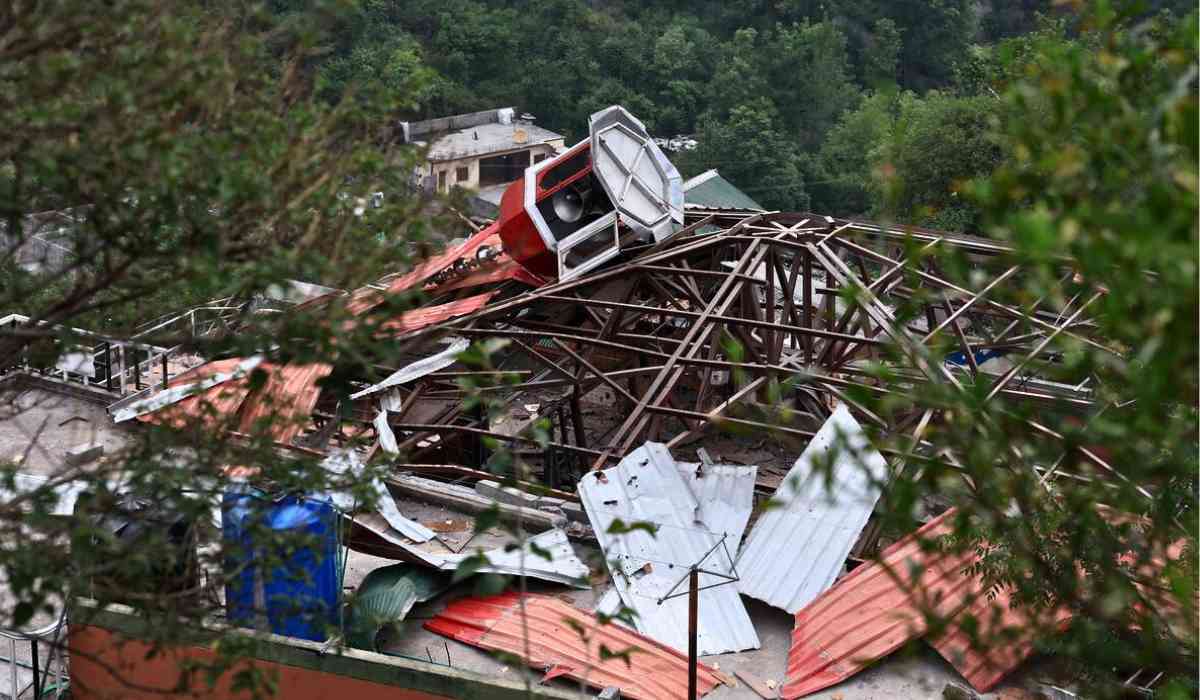In early May 2025, India launched a military operation named Operation Sindoor, targeting terrorist infrastructure in Pakistan and Pakistan-occupied Jammu and Kashmir (PoK). This action was a direct response to the brutal Pahalgam terror attack on April 22, which claimed the lives of 26 people, including Indian and Nepali citizens. The Indian government and military have emphasized that the strikes were precise, measured, and aimed solely at dismantling terror camps linked to groups Lashkar-e-Taiba (LeT) and Jaish-e-Mohammed (JeM), which India holds responsible for the attack.
Operation Sindoor: Details and Objectives

Operation Sindoor involved missile strikes on nine terror-related sites, including camps in Muzaffarabad, Bahawalpur, and other locations in Pakistan and PoK. Indian officials highlighted that no Pakistani military or civilian infrastructure was targeted, underscoring a strategy of restraint and precision to avoid escalation. The Indian Armed Forces used advanced technology and carefully selected warheads to ensure the destruction of terrorist facilities while minimizing collateral damage.
Foreign Secretary Vikram Misri explained that the operation was necessary because Pakistan had not taken demonstrable action against terrorist infrastructure on its soil, despite international pressure and the UNSC's call to bring perpetrators to justice. India’s intelligence indicated that further attacks were being planned, making preemptive action essential to protect Indian citizens.
India’s Position on UNSC Mandate

India has framed Operation Sindoor as consistent with the United Nations Security Council (UNSC) mandate, which calls for the punishment of terrorists and those who support them. The UNSC had recently issued statements emphasizing the need to bring to justice those responsible for the Pahalgam attack. India’s government conveyed to the international community that its strikes were in line with this mandate and were a responsible, proportionate response to terrorism emanating from Pakistan-based groups.
India’s officials also pointed out Pakistan’s failure to act against terror groups operating within its territory, despite repeated international warnings and attempts to address the issue through forums like the Financial Action Task Force (FATF) and the UNSC. This failure, India argues, justifies its right to self-defense under international law and UNSC resolutions.
Pakistan’s Response and UNSC Briefing

Pakistan condemned the strikes, labeling them a violation of Article 51 of the UN Charter, which recognizes the right of self-defense if an armed attack occurs. Pakistan’s Deputy Prime Minister and Foreign Minister Ishaq Dar stated that India’s actions were a breach of international law and warned of appropriate responses. Pakistan also claimed to have shot down five Indian aircraft during the conflict, though India has not confirmed these claims.
A closed-door UNSC briefing was held to discuss the escalating tensions. Notably, Pakistan was not part of this briefing, which was seen as significant given the ongoing conflict. India’s former Permanent Representative to the UN, Syed Akbaruddin, highlighted that despite Pakistan’s efforts to gain international support, it failed to secure any formal UNSC resolutions or statements condemning India’s operation.
Broader Implications

The Operation Sindoor strikes reflect a complex and long-standing conflict between India and Pakistan, centered around terrorism and territorial disputes in Kashmir. India’s approach shows a focus on targeted military action aimed at terrorist infrastructure, coupled with diplomatic efforts to justify these actions under international law and UNSC mandates.
Pakistan’s reaction underscores its view of the strikes as violations of sovereignty and international norms, raising concerns about escalation and the risks of broader conflict. The absence of Pakistan in the UNSC briefing points to diplomatic challenges in resolving the crisis multilaterally.
For the international community, the situation highlights the difficulties in addressing cross-border terrorism while maintaining peace and stability. The UNSC’s role remains crucial in balancing the rights of states to self-defense with the need to prevent escalation and promote dialogue.

In conclusion, Operation Sindoor represents India’s assertion of its right to act against terrorism in line with UNSC calls, while Pakistan’s objections and the ongoing conflict emphasize the fragile security environment in South Asia. The path forward requires careful diplomacy, restraint, and adherence to international norms to prevent further violence and to seek lasting solutions to the underlying issues.
With inputs from agencies
Image Source: Multiple agencies
©️ Copyright 2025. All Rights Reserved Powered by Vygr Media.

























